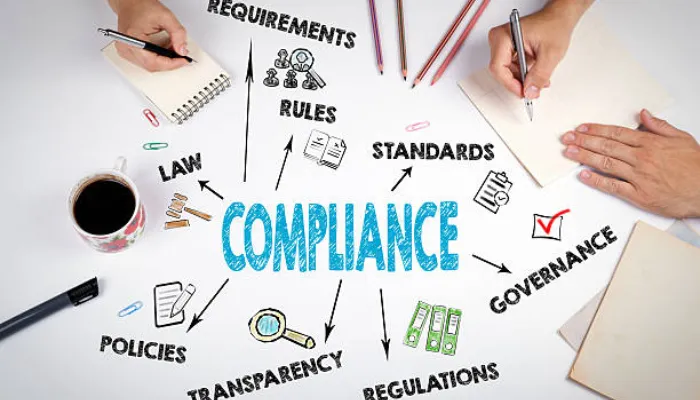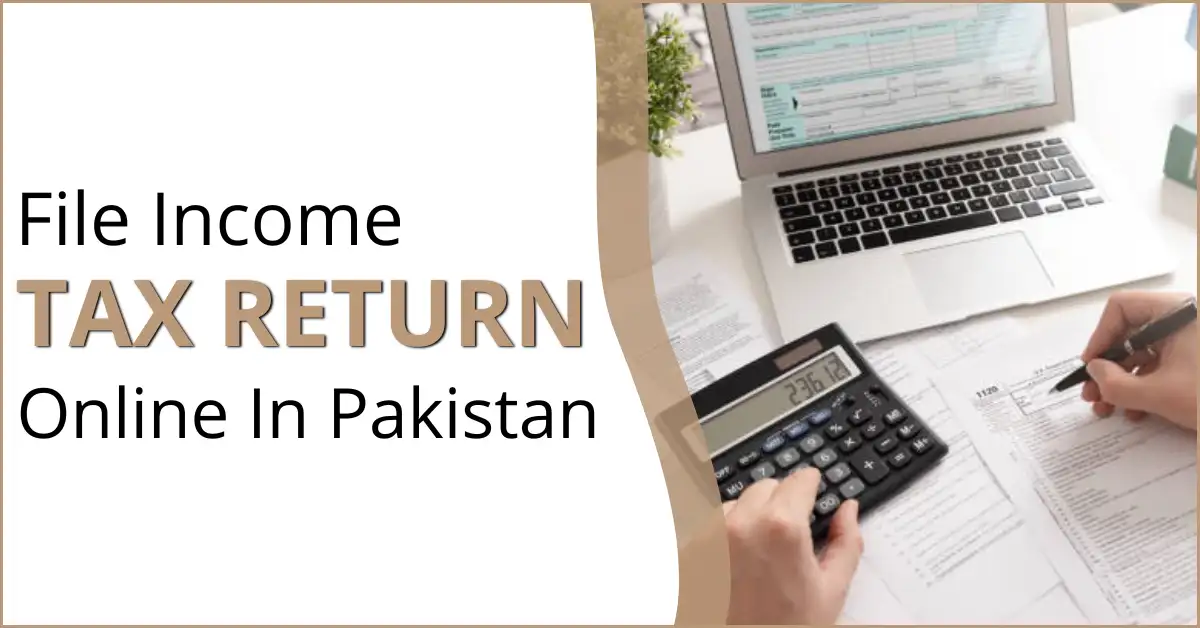How to File Income Tax Return Online Pakistan (Step-by-Step Guide)
Taxes! Just the word gives many a mini heart attack. But filing taxes doesn’t have to be scary—especially when you learn how to file income tax return online Pakistan in 2025. It’s quicker, easier, and smarter than ever before.
Whether you’re a salaried employee, freelancer, or small business owner, knowing the online tax return filing process in Pakistan helps you stay compliant, avoid penalties, and maybe even get some tax refunds!
Let’s simplify it for you with this power-packed, pun-filled, and foolproof guide.
Why File Income Tax Return Online Pakistan?
Filing your taxes online in Pakistan isn’t just a legal obligation—it’s a financial win. Here’s why:
Being a filer in 2025 is more important than ever—with increasing government digitization, you don’t want to be left behind.
Step-by-Step Guide to File Income Tax Return Online Pakistan
Here’s the moment you’ve been waiting for—a no-fluff, clear-cut process to file income tax return online Pakistan in 2025:
1. Register on FBR’s IRIS Portal
Go to https://iris.fbr.gov.pk/ and click on “Registration for Unregistered Person.”
You’ll need:
Once verified, you’ll receive a password to log into IRIS.
2. Gather All Your Documents
Before you begin, keep the following handy:
| Document Type | Details Needed |
| Salary Certificate | For salaried individuals |
| Bank Statement | To calculate deductions & income |
| Rental Agreement | If you’re earning rental income |
| Tax Deduction Certificates | Zakat, donations, and other deductibles |
| Utility Bills | If applicable under business income |
3. Log In and Choose ‘Declaration’
After logging into IRIS, go to the left-hand menu, click “Declaration” and select Income Tax Return for the year 2025.
4. Enter Your Personal Details
These include:
This step is fairly easy and takes just a few minutes.
5. Declare Income Sources
This is the meat of your return:
6. Claim Deductions and Tax Credits
Don’t miss this golden chance to reduce your tax burden.
Examples:
7. Compute and Verify Tax Payable
FBR’s portal will auto-calculate based on your entries. Make sure:
8. Submit the Return
Once done, hit “Submit” and download your Acknowledgment Receipt. Boom! You’re officially a responsible taxpayer.
Key Points to Remember
Common Mistakes to Avoid
Pro tip: If you feel stuck, consult income tax experts at Waystax they know the ropes and won’t let your taxes tie you in knots!
The Filing Impact in 2025: How Tax Compliance is More Crucial Than Ever

In 2025, tax compliance is no longer just about following legal obligations; it’s become a key factor in various areas of business and personal dealings.
From securing visas to accessing financing, the implications of filing taxes are more significant than ever. Let’s explore how tax compliance is playing a major role in several crucial sectors.
1. Visa Processing: A Key Requirement
One of the notable changes in 2025 is that tax returns are now being requested by some embassies during the visa processing procedure. Whether you’re applying for a business or travel visa, your tax filings could be scrutinized to assess your financial stability and responsibility.
This is a reflection of the growing importance of transparency in financial matters. For business owners and entrepreneurs, maintaining up-to-date tax records could mean the difference between securing a visa or facing delays.
2. Securing Government Contracts
When bidding for government contracts, tax compliance is now being closely scrutinized. Contractors must provide tax clearance certificates to prove that they are in good standing with the authorities.
A clean tax record indicates financial stability and trustworthiness, both of which are critical for public-sector contracts. Failure to comply with tax laws can result in disqualification, so it’s crucial for businesses to ensure they meet all tax requirements.
3. Access to Bank Financing
Tax filings are increasingly being used by banks to evaluate the financial health of individuals and businesses. In 2025, securing a loan or financing from banks requires not just solid financial statements but also clear proof of tax compliance.
Lenders are looking for borrowers who show consistent income and responsible tax payment habits. By ensuring that your tax returns are filed on time and correctly, you can significantly improve your chances of obtaining favorable loan terms.
4. Being ATL (Active Taxpayer List): Saving on Taxes
Being listed on the Active Taxpayer List (ATL) in 2025 offers several advantages. ATL status means that you are recognized by the tax authorities as a responsible taxpayer, and this status can unlock various savings.
For instance, you can enjoy reduced tax rates on items like mobile top-ups, vehicle registration fees, property taxes, and even bank transactions. This offers significant savings for both individuals and businesses, making it a valuable incentive for staying compliant with tax laws.
Additionally, businesses listed on the ATL are often seen as more credible, which can help them in negotiations with partners, customers, and suppliers.
5. The Role of Scent N Stories in Financial Transparency
For businesses in Pakistan, maintaining transparency in all areas—including tax compliance—has never been more important. Companies that stay on top of their taxes not only enjoy financial benefits but also bolster their credibility in the market.
If you’re looking for unique ways to manage your business operations while building trust with your customers, consider offering products that reflect that commitment to quality and transparency.
For example, businesses like Scent N Stories show how a commitment to quality can reflect a company’s values, and how fragrance can symbolize the richness of responsible financial practices.
6. Buying and Selling Businesses: The Impact of Tax Compliance
If you’re looking to buy or sell a business in 2025, tax compliance is a crucial factor to consider. When using platforms like Exitbase which facilitate the buying and selling of businesses, a clean tax record can significantly increase the attractiveness of your business.
Buyers are more likely to be interested in a business that is financially transparent and compliant with all regulations.
On the other hand, sellers can benefit from higher valuations, as tax compliance demonstrates financial responsibility and reduces the risk for potential buyers.
By prioritizing tax compliance, you’re not just ticking a legal box, you’re actively engaging in practices that could benefit your bottom line and reputation.
Whether you’re dealing with visa processing, government contracts, securing financing, or even buying and selling a business, staying compliant in 2025 is more important than ever.
File income tax return online Pakistan : FAQs
Conclusion
Filing taxes doesn’t have to be taxing! With digital tools, user-friendly portals, and some guidance, you can file income tax return online Pakistan without a hitch in 2025.
Make sure to keep your documents in order, claim all legal deductions, and use reliable platforms. Boost your professional image with tools like business card mockups and improve communication using Business WhatsApp Web for client coordination.
And if you’re curious about financial terms like equity in business, learning the basics can really help you make smarter tax and investment decisions.
When in doubt, let the pros at Waystax do the heavy lifting—they make taxes feel less like a task and more like a triumph.
Happy filing and even happier refunds!

